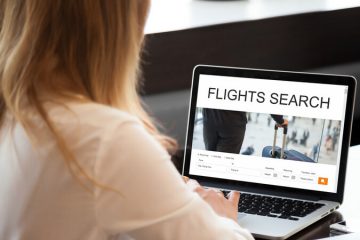When planning to send an employee on a business-oriented trip or to an event for company exposure, one overlooked aspect of travel planning is business travel meal expenses. Yes, it is quite easy to forget to plan for a traveling employee’s meal allowances amongst all the other tasks like hotel bookings and flight check-ins. However it is an essential component of the overall travel. Therefore, let’s see how to plan for this important and inevitable expense of business travel.
How do we define business meal expenses?

Meal expenses can occur in many different circumstances. Travel managers should be vigilant while mentioning the expenses that will paid by the company and that which are not. They should communicate the same with the employee as well.
1. Meal allowance for business travel
When an employee has to travel for a meeting with prospective clients or with representatives of a stakeholding company, business meals will make up for an important expense. These expenses should be paid by the company or should be reimbursed if the employee is paying for it out of their pockets.
2. Dining with a client or prospect
Often a business will find themselves hosting their clients for a meeting or inviting over prospective clients to discuss details or sign the dotted line for future collaboration. In these instances, some employees involved with the project will have to take the client or the prospect teams on a dinner following a successful meeting or perhaps even if the meeting did not go as expected. These dinners can be quite expensive, and the hosting business should bear the costs, as trying to be economical in these instances might send the wrong message to the guests.
3. Meal expenses when attending conferences
Business events and conferences often provide a complimentary meal, whether it be a lunch or dinner to all attendees post the completion of the event. But it is not always provided by the house. Further going to a conference usually is not a one-day activity, flights are booked with a day in hand before and the return is booked for the day after. An employee would have to pay out of pocket for plenty of other meals, if not covered by their employers.
Importance of covering meal expenses of a traveling employee
In common, employees attend a business meeting or corporate event in a foreign place on account of doing a job. Meal expenses that come with the travel assignment are expenses made towards the successful completion of a corporate task. Therefore the employer must reimburse the employee for any meal expenses made. Businesses can also provide the employees with a company credit card or similar means to cover meal expenses during the travel.
Different ways of covering meal expenses
1. Prepaid corporate cards
Prepaid corporate expense cards are cards already paid for by the business. They are provided to traveling employees to cover travel-related expenses while on the trip within the allotted amount. Such a card will also cover meal expenses when necessary.
2. Virtual corporate wallets
Prepaid virtual wallets function the same way as their prepaid card counterpart, apart from existing virtually. With virtual transactions becoming predominantly the main form of money transfer with vendors and service providers today, virtual wallets are very convenient.
3. Corporate credit cards
Credit cards come with the added benefit of having an expense limit and corporate can review and evaluate all expenses after the trip and pay the card balance accordingly.
4. Post-trip reimbursement
Though considered unconventional today, reimbursing an employee after they have paid out of pocket for all expenses and provided an expense report to the corporate is also a possibility.
What is included in business travel meal allowance?

Should be included
- Breakfast, lunch, and dinner expenses while on business trips or attending conferences
- Meal expenses incurred when hosting clients and prospects
- Expenses incurred when inviting a client or prospects to a meal
- Expenses for special meals for specific health conditions or religious beliefs of an employee. E.g.: Gluten free or Halal foodp
Should not be included
- Snacking expenses are usually not covered by the corporate
- Expenses incurred when attending an informal or unnecessary party or event during a business trip
- Alcohol expenses are also not covered by the corporate but some exceptions to this can be found
- Amidst all this, there are always certain gray areas where considerations as per the requirement of the situation, can be made
Conclusion
Meal expenses are given when considering business travel or when hosting clients. Pre-planning for meal expenses can be a useful exercise in proper budget allocation. While most travel managers deem it secondary in importance to many other decisions like flight and hotel booking, it is a crucial decision to make for the well-being of the employees. It further ensures a smooth completion of the task at hand for the employees.
Suggested Read: Top 5 Health Tips For Frequent Business Travelers
Business Travel Meal Expenses FAQs
What is a business meal expense?
Business meal expenses can be broadly defined as expenses made towards meals when traveling or eating out locally for the economic or social growth of the company.
What are the different ways of covering an employee’s business meal expenses?
Prepaid corporate cards, prepaid virtual wallets, corporate credit cards, and post-expense reimbursement.
What should fall under business meal expenses?
Three meals of the day, breakfast, lunch, and dinner when traveling for corporate goals. Along with expenses incurred when hosting clients, also additional expenses are incurred if the employee in question needs a special meal like a gluten-free, dairy-free, or Halal meal.
What should not fall under business meal expenses?
Unnecessary snacks, alcohol, and expenses incurred to attend irrelevant parties/social events when on a business trip should not be considered business meal expenses.



